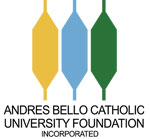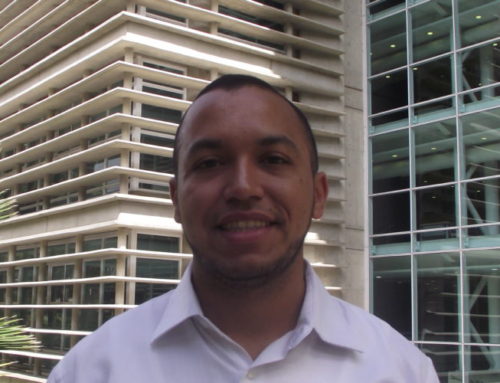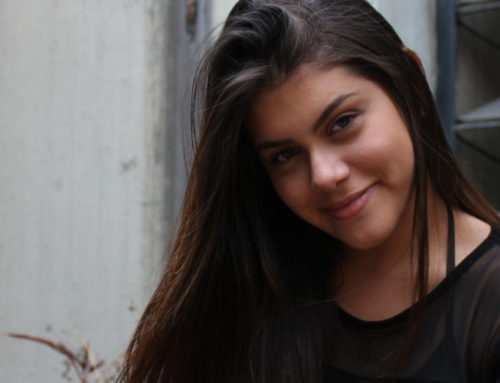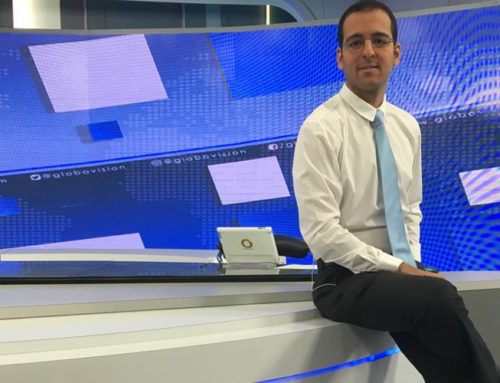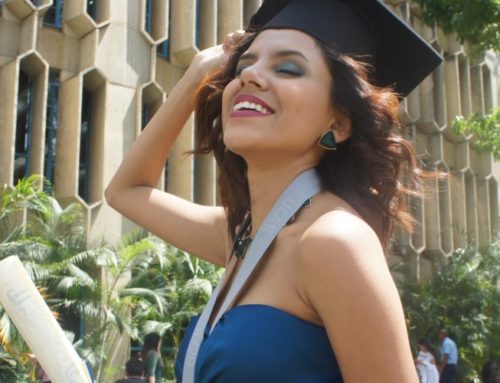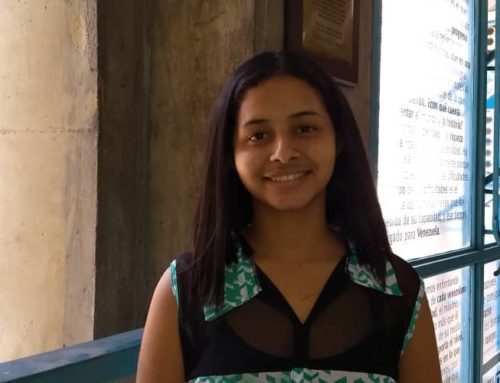José Javier Salas is the headmaster of the School of Education at UCAB. He graduated in 1999 from this university with a degree in Education, with a specialization in Physics and Mathematics, and since 2000 he has been a professor at this institution in the areas of mathematics and educational informatics.
José lived all his childhood in the parish of La Vega. He studied at the Liceo Aplicación and was in charge of collaborating with his community through the community work group Utopía, an organization that, since its foundation in the eighties, has been in charge of organizing educational activities to help local children, such as the Mathematics and Spanish Olympics and summer schools.
In this last activity, the community organizes itself to manage its own talent by creating a space for training and educational preparation during the summer schools period; indispensable at the time for passing the make-up or repair exams that had to be taken by high school students in the month of September.
José comments that there was a rule that required the teacher of the summer school to be from the parish of La Vega. Certainly some people who came from outside and wanted to help could not, but the rule was made because the organization advocated that the solution to La Vega’s problems should come from the community itself.
Back then, I had to go up with my group to knock on doors asking where there were good students, and once we got them we had to convince them that giving free classes was good. So, little by little, we were able to get many guys to help us with the classes and activities.
He says that the education they provided was actually very cheap, even, in some cases, free. They did it to help the community.
What did we charge for education? Well, a movie ticket. We used to say that this whole Summer School program was like a movie, so we charged a movie ticket for those who wanted to come and study. Well, even if the kids didn’t have enough to pay for it, we’d still let them in to see their classes and learn with us.
The Summer School Program lost many students and became an institution of advancement for students to prepare for the following year after the elimination of placement tests. Today, 38 years after the creation of the Utopia group, the activities are still going on.
He met UCAB because the Community Service that the university was carrying out had a great link with the Utopia group. At that time, Father Jean Pierre Wyssenbach took psychology students to La Vega to collaborate with this group in the activities with the children.
The Psychology students had never been to a rural neighborhood, and yet we arrived to the highest and hardest part of the parish where no one studied. We knew we weren’t going to find teachers there, but we did it to show a well-positioned group how tough the reality was in some parts of Venezuela.
Thus, José fell in love with UCAB and with the initiatives that the university has to help the surrounding communities.
I don’t know if it was because of the innocence of the age or the innocence of the time, but I never thought about how I was going to pay for it, still, I was motivated by the support of the university with the community.
José found it difficult to pay for his studies, so he applied for financial support. In this way, he obtained a proportional pension of 85% of the tuition.
I only paid 15% of the tuition, and I earned that money by working on the streets. In the morning I was in charge of doing surveys selling resorts. That way, I paid for my first year of college, which was six hundred bolivars a month.
Later, and thanks to his academic performance, Jose was named tutor of a Mathematics course in Preschool Education, which helped him stabilize economically.
In 1999 he graduated from his career, but since he wanted to continue studying, he began a Master in Mathematics in 2000 at the Simón Bolívar University (USB), and then in 2007 made the Doctorate in Science specialized in Computer Mathematics.
I thought it was necessary to be educationally prepared and to become an example for the young people who were just starting out.
However, since the year 2000 he was a part-time teacher of Educational Informatics at UCAB. In 2004 he entered as assistant of the Coordination of Physics and Mathematics. Nowadays he is the principal of the School of Education and is one of those at the head of the Educa 20/20 scholarship program.
About this initiative, José affirms that they are trying to promote the study of the career of Education in young people, and denounces that the disinterest of this career is not only due to the economic aspect, but to the collapse of the traditional model.
High school students see teachers and do not want to become professionals who replicate the same model, which is very different from current technology. We have proposed to dismantle that, because with the digital reform that we have in our study program we want to involve the student of Education with current technologies.
He says that despite the fact that other institutions offer free education, young people still prefer UCAB.
The academic offer in other institutions is not attractive enough for people to enroll. With the Educa 20/20 program we made the degree practically free and the students do want to study at UCAB. There is an important change, because the students make a great effort to study at this university.
He assures that the only way to move forward and help the country is through education, because today more than ever it is necessary to prepare new professionals for the future.
Regarding donations, José believes that enough money can be raised to carry out the program, because he believes that this project is promising and will bear fruit in the years to come.
There is a group of scholarships owners of more than 130 students who are being formed thanks to the commitment of the Society of Jesus and the commitment of one of its main allies. That group of students who dream of becoming teachers and who do not want to leave the country because they think that education is the way to national reconstruction, needs all our support.
Donating to education in Venezuela is incredibly cheap, because a semester at a university in another country could even cost ten thousand dollars. With that amount of money at UCAB, we could give scholarships to at least five students during their four-year careers.
With so many Venezuelans abroad who want to help their country in a determined way, the answer is, in short, to bet on Venezuelan education. The Jesuits, the more than 100 excellent professors of the School of Education and the Andrés Bello Catholic University as a whole bet on it.

